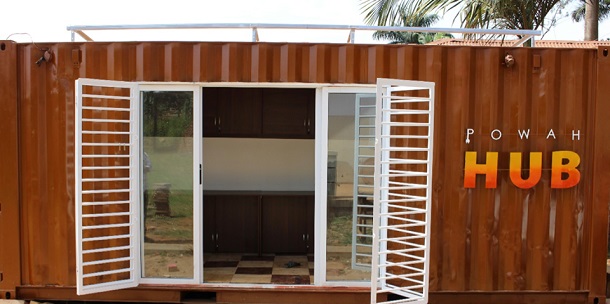Powah Limited, a Ugandan social enterprise committed to providing energy solutions to communities that don’t have access to electricity, in June of this year received a US $25000 (about Shs95 million) grant from The Trade and Development Bank (TDB).
Uganda currently has about 20 percent of the population connected to electricity, one of the lowest figures globally.
The number drops to an estimated 7 percent in rural areas.
On top of the above disturbing figure, the minimum wiring costs for a household is still high, with estimations putting it at about $90 for a small house, which is a huge figure in a country where the average monthly income of a household is less than $50.
As government is working to achieve percent electricity access rate in the next 10 years, according to a new project that was rolled out by the Rural Electrification Agency this year, startups like Powah are also putting their minds together to come up with projects that could help in providing for areas that may not quickly benefit from government initiatives.
Recently the startup announced that it would be using the grant to set up hubs around the country where they will be able to serve those communities that are far from the grid.
Must read: Inside the struggle to build robust SafeBoda app
Dubbed Powah Hubs, the facilities will be powered by solar and they will enable people to charge their phones and buy other energy products that will be sold at the hubs.
[ot-video][/ot-video]
According to Esteeri Kabonero, the founder of Powah Limited, the hubs will also have computers connected to the internet, to enable people to access the digital world.
“… The point is to create income-generating activities,” Kabonero told us by phone. “Communities that don’t have access to the grid, they will now be able to have access to solar products.”
A graduate of Business and Management Information Systems and Technology from Boston University, Kabonero registered Powah in January of 2017, and she says that she has realized that some people in remote areas operate businesses like mobile money which require continuous access to power for charging their phones.
The first Powah Hub, according to Kabonero, will be set up in Nakivale Refugee Settlement found in Isingiro district.
This, she told SautiTech, will be a pilot project as they scout for the next communities to spread out to.
[ot-video][/ot-video]
Esteeri Kabonero, who from 2013 to 2015 worked with the Rwanda Development Board (RDB) in the ICT department, has done multiple fundraisers to support refugees, including one at the end of last year that sought to raise funds for Bidi Bidi refugee settlement, the largest in the world.
More stories on startups:
Meet Yunga, a community security system that stunned 2018 HiiL Justice Challenge
Exclusive: Uganda’s 2ambale set for Kigali expansion

